Road congestion, shortcomings in public transportation, and pollution are some of the most pressing global challenges today. But experts and insiders of Israel’s smart transportation and mobility sectors are confident the “tipping point” signaling imminent, life-changing transformation is near. This was the slogan of the seventh annual EcoMotion Conference in Tel Aviv on Tuesday, where over 4,000 participants from Israel and across the world – including entrepreneurs, academics, investors, government officials, and executives – gathered for the main event to discuss the future of mobility.
Kicking off the conference was Bill Ford, executive chairman of the Ford Motor Company and great-grandson of Henry Ford, who in 1908 introduced the Ford Model T, the first affordable automobile credited with revolutionizing modern transportation. In a fireside chat with Israeli journalist Dana Weiss, Ford said he’d felt for some time that the industry was “heading in the wrong direction” and that the “business model being broken.” Ford said the company has since 2009 operated a venture capital fund dedicated to investing in mobility and automotive tech startups.
SEE ALSO: At The Wheel: Why Israel Is A Driving Force Behind The Cars Of Tomorrow
On Wednesday, Ford is set to inaugurate a new research and development center in Tel Aviv. The center will operate alongside Ford’s local subsidiary SAIPS, an Israeli computer vision and machine learning company it acquired in 2016.
The Israeli tech ecosystem, said Ford, who is on his first visit to Israel, “is fantastic.”
“The lack of hierarchy makes Israel a really great place to start up and make your voice heard early in the process,” he said in reference to Israeli business culture, which encourages open communication and is less hierarchal than in the US and Europe.
Ford said he was fascinated by “the egalitarian part” of Israel. “I love that, and I really think it sparks innovation,” he said during the chat.
Speaking about the role of more traditional companies in an emerging startup world, Ford said cooperation was key. “We don’t have to be disruptors, we have to encourage disruptors and then partner with them.”
The main question companies like Ford have to ask themselves, according to Ford, is “how do we become much more responsive to startups and create an ecosystem that we are a part of?“
Ford called the ongoing revolution in the automotive industry the most exciting time of his career. “The companies who get it right and integrate all these technologies will change people’s lives,” he said, adding that those that don’t will be “consigned to the dustbin of history.”
Ford, the company, made a big push into the autonomous vehicle field in 2017, investing over $1 billion in the Pittsburgh-based startup Argo AI. Ford, the executive, said the self-driving system “is incredibly competitive,” and from a tech perspective, “we are right up there with the very best in terms of time of development.”
But, he added, “we want to take great care before we let people in these vehicles. We are dealing with people’s lives. We have to be absolutely sure these are ready for prime time in all conditions,” he was quoted as saying.
The opening of the Ford center comes on the heels of the launch of the Alliance Innovation Lab Tel Aviv by Renault-Nissan-Mitsubishi this week. The lab will focus on sensors for autonomous driving, cybersecurity, and Big Data, and will work with over 10 participating Israeli companies to develop proofs-of-concept and prototypes.
Movers and shakers
Representatives from over 200 Israeli startups and companies in the fields of urban mobility, shared mobility, energy and electrification, cybersecurity, and autonomous and connected vehicles were at the EcoMotion conference on Tuesday, showcasing their solutions as well as participating in panel discussions and demonstrations.
Mobility-As-A-Service (MAAS) solutions were debated as a means of facilitating sustainable alternatives to private vehicle ownership in urban areas. Nir Erez, CEO and co-founder of Moovit, highlighted the need to erase friction points in public transit, in order to accelerate its adoption. Earlier this year, the company announced a collaboration with Uber to better “connect all moving parts,” Erez said. The goal is to “make each trip a much smoother experience in terms of the timeline, connectivity and payment.”
Moovit combines scheduled data from transport operators with real-time community-sourced information to provide the fastest public transit routes. The app allows users to select between different local transit options and to view their journey on a live map. More than 450 million people in about 2,800 cities are currently using the service established in 2012.
While some companies combat congestion with advancing public transport and connectivity, others aim to take traffic up in the air. NFT, an Israeli-American startup founded in California, revealed its design for a flying electric car called the Aska.
Elena Olvovsky, Algorithm Leader at the R&D Center for NFT in Israel tells NoCamels that its target market is families with young kids. “So it has to be practical and affordable, without anyone needing a flying license.” The car can drive on the road and fly autonomously, she says, “taking off vertically like a helicopter and then spreading the ‘wings’ in the air.”
NFT says it is working together with the Federal Aviation Administration (FAA) and NASA and has testing scheduled for the beginning of next year.
In statement released ahead of EcoMotion, NFT said the Aska started as “a dream of a future where people spend less time in traffic and more time with their loved ones; where people can live in affordable communities and commute quickly and safely to urban centers; where people have a better quality of life and local businesses and communities thrive.”
Sign up for our free weekly newsletter
SubscribeThere is also significant headway in charging technology for the electric vehicles market. Israeli startup StoreDot and its strategic partner BP presented a full-charge of a two-wheel electric scooter within five minutes for the first time.
“Within today’s society of time poverty, a five-minute charge enabled by ultra-fast charging batteries and infrastructure can make an EV as attractive to users as a petrol or diesel one,” explained Dr. Doron Myersdorf, CEO of StoreDot, at the demo. The company aims to apply its ultra-fast charge technology to four-wheel electric vehicles in the future.
“This is an important milestone for the industry, and we will continue to evolve our technology in close collaboration with our partner BP to help in EV [electric vehicle] adoption,” Myersdorf said.
Israel’s Innoviz Technologies, meanwhile, a world-leading provider of solid-state LiDAR sensors and perception software, says plans with German auto giant BMW Group to roll out a Level 3 autonomous car – where the vehicle offers ‘conditional automation’ – by 2021 are on track.
Innoviz entered an agreement with BMW last year to supply the automaker with its automotive-grade LiDAR InnovizOne and computer vision software for its autonomous vehicle production.
Recently, Innoviz closed out a Series C funding round of $170 million to accelerate its path to mass production and commercialization.
Innoviz co-founder Oren Rosenzweig tells NoCamels in an interview on the sidelines of the conference that the company, founded in 2016, has a number of other partnerships in the works and is set to showcase a new product at CES next January.
Israeli startup Cognata, which developed a sophisticated automotive simulation platform to accelerate the development of autonomous vehicles, also has key partnerships with global multinationals including Audi AG, Nvidia, and Dassault Systemes.
Cognata’s solution leverages AI, deep learning, and computer vision to create a realistic traffic environment, where virtual cars behave just as they would in the real world, before they are tested on the roads themselves. The cloud simulator “trains” the vehicles, generating various weather conditions and simulating thousands of different scenarios so that the cars will constantly be learning to drive in a real-life manner.
Cognata founder and CEO Danny Atsmon tells NoCamels that the company is currently working with OEMs (original equipment manufacturer) in Japan, China, the US, and the EU – “the whole world, really,” he jokes.
Atsmon says Cognata is constantly working to integrate Israeli startups working in the industry into the platform so auto manufacturers and developers can simulate with different technologies.
Russian tech company Yandex, which has been piloting its driverless technology in Tel Aviv announced that it was opening a local office and introducing over 100 autonomous cars by the end of the year.
Yet, still critical for the adoption of autonomous driving vehicles is the interaction between machine and human. To this end, Israeli company Intuition Robotics, which developed the ElliQ – the intelligent and friendly robot for elderly assistance – announced a partnership with the Toyota Research Institute to build an in-car AI companion for concept vehicles.
CEO and co-founder Dor Skuler explained that the new focus on the in-car experience will be about helping humans manage their comfort levels. The AI companion will engage the driver and passengers in a proactive and personalized way that is meant to accelerate the consumer acceptance of autonomy, the company said in a statement.
SEE ALSO: Vroom, Vroom: Israeli Tech Is At The Forefront Of The Newest Mobility Trends
Intuition Robotics sees this as the start of a new era of mobility intelligence that will break with current voice assistants that are user-initiated.
Today, Israel is home to more than 550 startups in the automotive and smart mobility sector and investments rising up to $22 billion over the last five years. EcoMotion is a community of over 600 startups and 8,000 members in the transportation sector. It is a joint venture of the Israeli Innovation Institute, the Alternative Fuels and Smart Transportation Administration in the Prime Minister’s Office, and the Ministry of Economy. EcoMotion says it is building an interdisciplinary community focused on developing smart transportation, stimulating multiple solutions in R&D and entrepreneurship.
For a photo essay on EcoMotion by writer and photographer Anjali Berdia, see below.
Related posts

Editors’ & Readers’ Choice: 10 Favorite NoCamels Articles

Forward Facing: What Does The Future Hold For Israeli High-Tech?

Impact Innovation: Israeli Startups That Could Shape Our Future


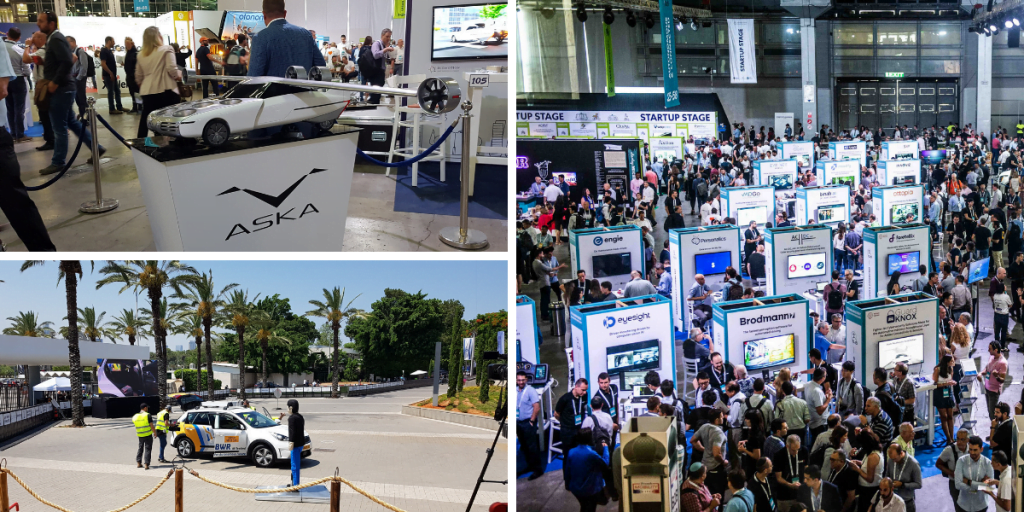
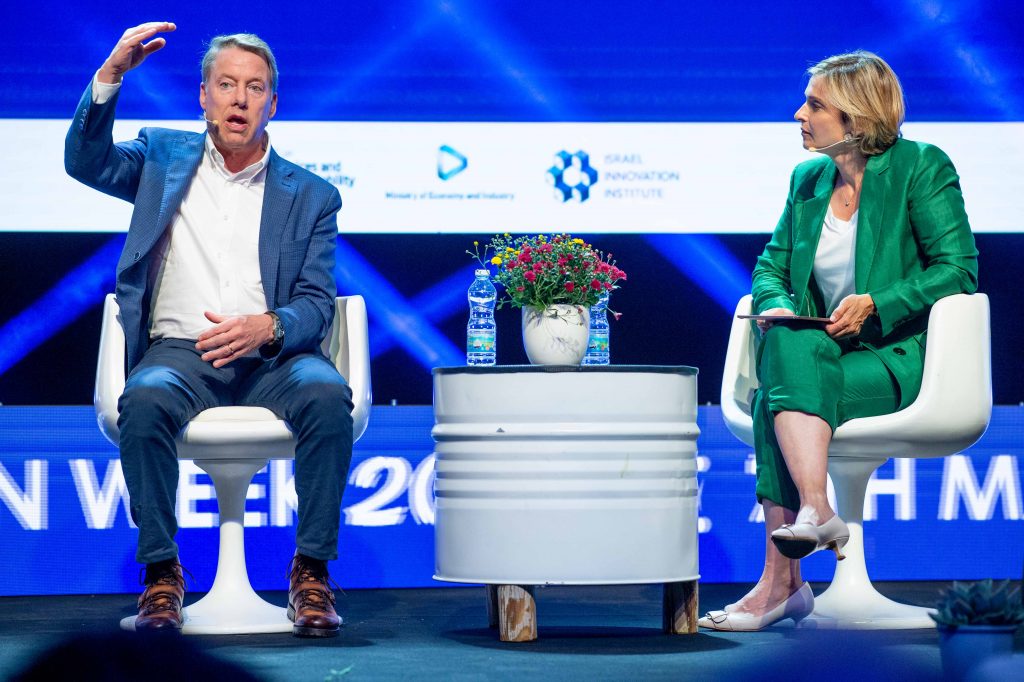
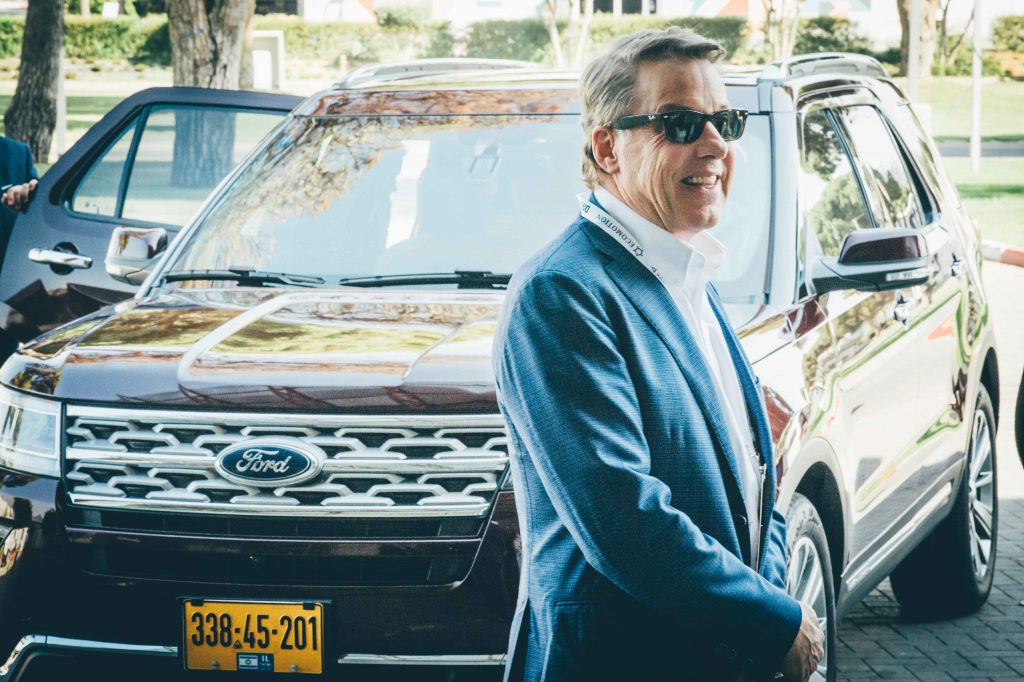
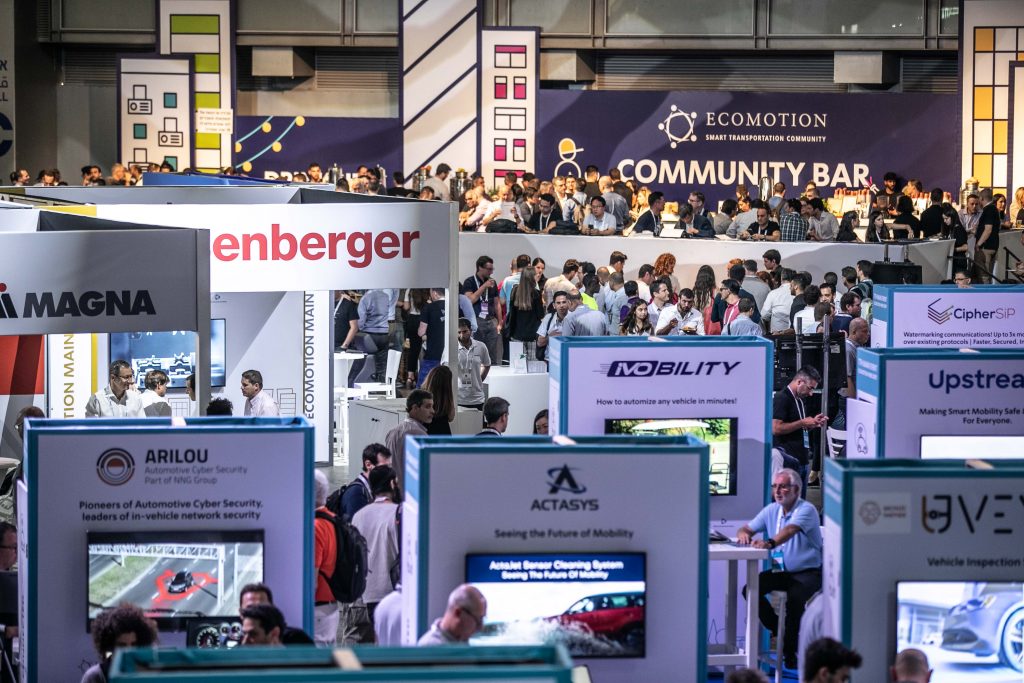
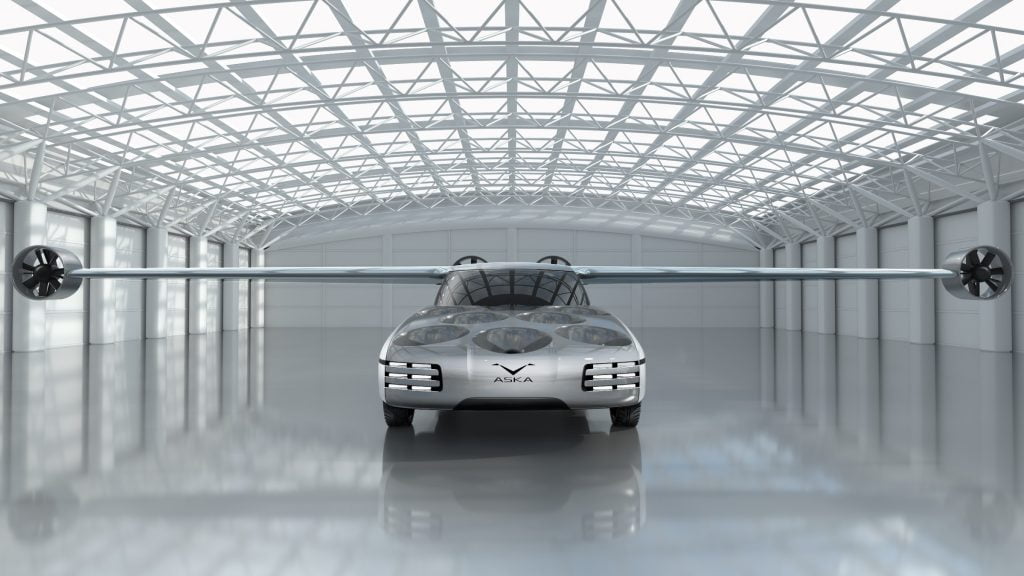
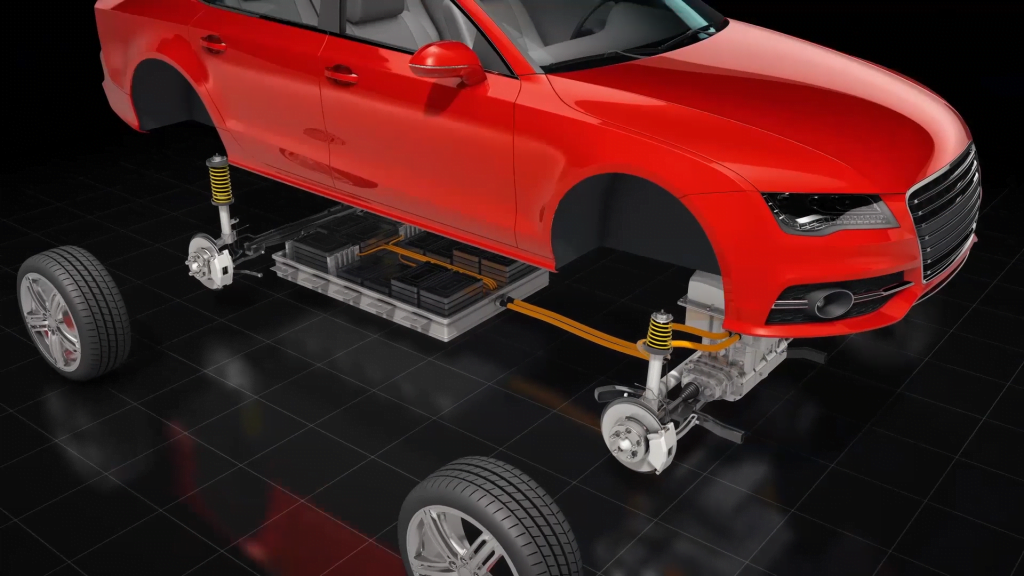
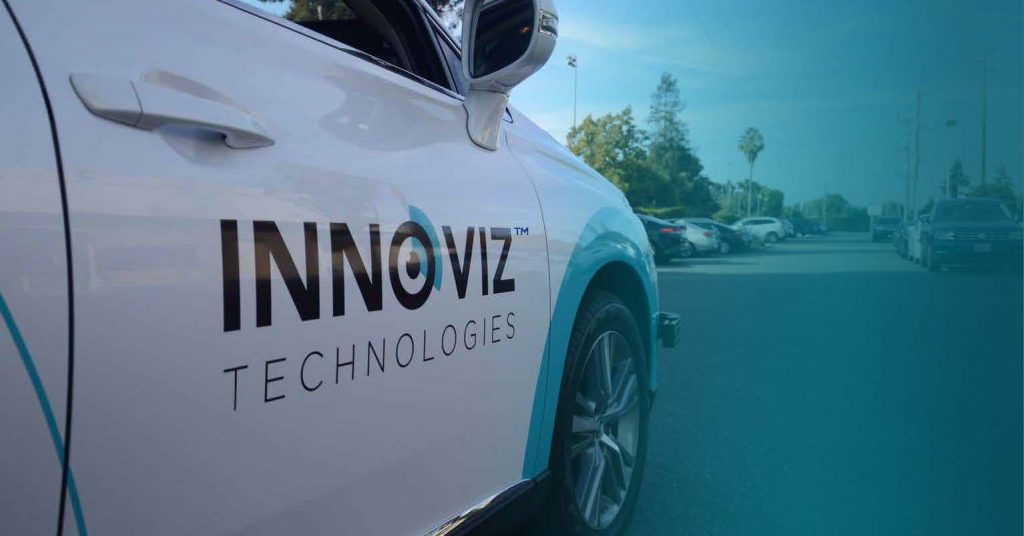
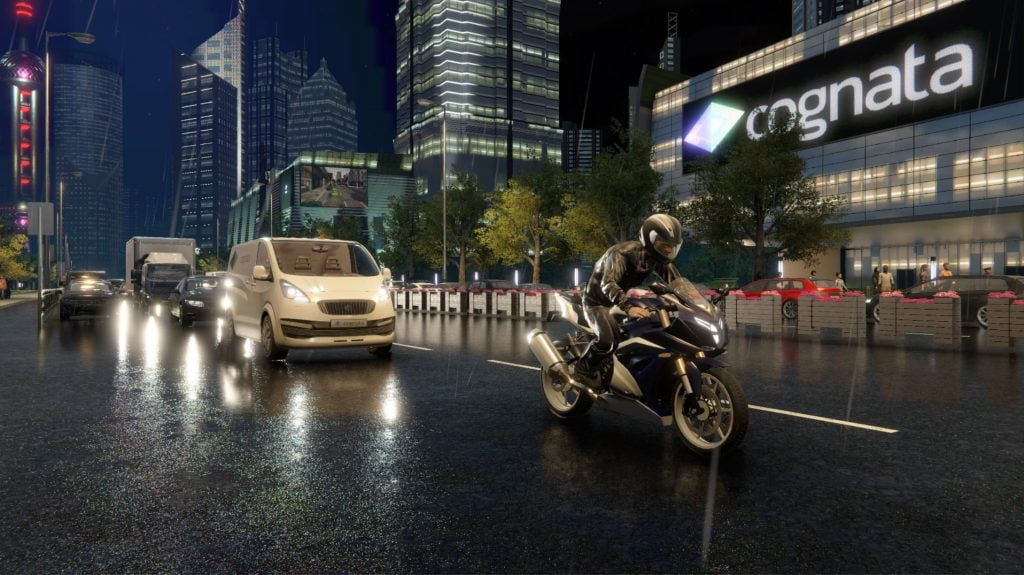


Facebook comments